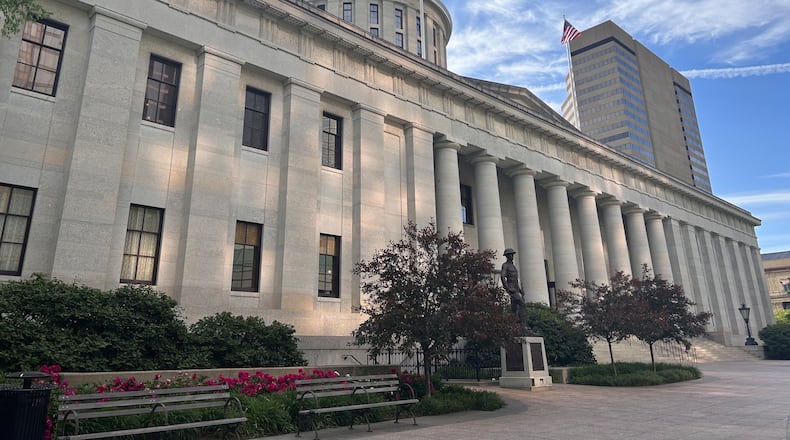The Senate’s budget proposal cuts out the program entirely and expands a law that prohibits developers from pairing federal and state incentives to build low-income housing. The Senate’s move, bewildering to affordable housing advocates, would allow the state to collect additional tax revenue, though the amount is unclear.
Coalition on Homelessness and Housing in Ohio (COHHIO) Executive Director Amy Riegel characterized the Senate’s approach as an “all-out assault” on rental housing across the state.
Officials with a Dayton-based affordable housing provider said the Senate’s budget does not adequately address affordable housing.
“We have a crisis and this does nothing to address it,” CountyCorp Vice President of Housing Adam Blake said of the Senate’s budget. “In fact, it makes it worse.”
The Senate’s proposal also excludes rental property developers from receiving an Ohio Opportunity Zone Tax Credit — a federal program designed to increase community investment in economically distressed areas across the state with tax credits.
The Senate took similar steps to stop local governments from providing tax exemptions for owner-occupied housing in locally-designated community reinvestment areas (CRA) and limit the tax exemptions all residential projects receive through Tax Increment Financing (TIF).
CountyCorp President Steve Naas said canceling new housing tax credits, while limiting existing tax exemptions at the same time, will have a broadly negative impact on the development of affordable housing across the state.
“We’re in a time right now where we as residents of communities realize there’s a demand in housing, in every community, that is not able to be satisfied,” said Nass. “What the Senate is doing is they’re saying, ‘We’re going to remove some of the potentially most effective ways to make this kind of housing available because we want to remove taxes.’”
Riegel said she hopes that, as the budget bill moves along, the affordable housing provisions will be restored back to the governor’s proposal.
“It’s as simple as that,” Riegel said. “We would just love those elements to be restored.”
The Senate Finance Committee is hearing public testimony on their proposed budget through the end of the week. Once passed by the Senate, it’s expected to move to a joint conference committee where it will be deliberated by a select group of senators and representatives.
About the Author

